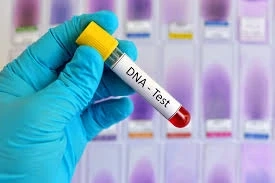DNA testing, also known as genetic testing, is a process that analyzes a person's DNA to determine specific genetic traits or conditions. The test can provide valuable information about an individual's health, ancestry, and potential risks for certain diseases. DNA testing has become increasingly popular in recent years due to its ability to provide accurate and personalized information.
There are many different types of DNA testing, each with its own specific purpose.
Some of the most common types of DNA testing include:
Ancestry testing: This type of testing is used to determine a person's genetic ancestry and ethnic background. It can be helpful in tracing one's family history and understanding their genealogy.
Paternity testing: Paternity testing is used to determine the biological father of a child. It can be useful in cases where paternity is in question, such as in custody battles or child support cases.
Carrier testing: Carrier testing is used to determine whether a person carries a gene for a genetic condition, even if they do not show any symptoms of the condition. This type of testing is often done before couples decide to have children, to determine whether they are carriers of a genetic disorder that could be passed on to their offspring.
Diagnostic testing: Diagnostic testing is used to determine whether a person has a specific genetic disorder or condition. It can be helpful in diagnosing diseases such as cystic fibrosis, Huntington's disease, and sickle cell anemia.
Forensic testing: Forensic testing is used to analyze DNA samples found at a crime scene. This type of testing can help law enforcement identify suspects and solve crimes.
DNA testing is typically done using a sample of the person's saliva, blood, or other bodily fluid. The sample is then sent to a laboratory for analysis. The lab will use various techniques to analyze the DNA, such as polymerase chain reaction (PCR), gel electrophoresis, and DNA sequencing.
One of the biggest advantages of DNA testing is its ability to provide personalized information about an individual's health risks. For example, a carrier test can determine whether a person is a carrier for a genetic disorder such as cystic fibrosis, even if they do not show any symptoms of the condition. This information can be useful in helping people make informed decisions about their health and the health of their potential children.
Another advantage of DNA testing is its ability to help people trace their ancestry and understand their genealogy. Ancestry testing can provide information about a person's ethnic background and help them learn about their ancestors and family history. This can be particularly helpful for people who have been adopted or who are otherwise unable to trace their family tree.
Despite its many benefits, DNA testing also has some potential drawbacks. One concern is the privacy of genetic information. Some people worry that their DNA results could be used against them in some way, such as by insurance companies or employers. There is also the possibility that genetic information could be used to discriminate against certain groups of people, such as those with a predisposition for certain diseases.
Another concern is the accuracy of DNA testing. While DNA testing is generally very accurate, there is always the possibility of error or misinterpretation of results. This can be particularly concerning in cases where DNA testing is used to determine paternity or diagnose a genetic disorder.
In conclusion, DNA testing can provide valuable information about an individual's health, ancestry, and potential risks for certain diseases. While there are some potential drawbacks to DNA testing, the benefits often outweigh the risks. By understanding the different types of DNA testing and their specific purposes, individuals can make informed decisions about whether DNA testing is right for them. As the field of genetics continues to advance, it is likely that DNA testing will become even more accurate and personalized, making it an even more valuable tool for understanding our genetic


